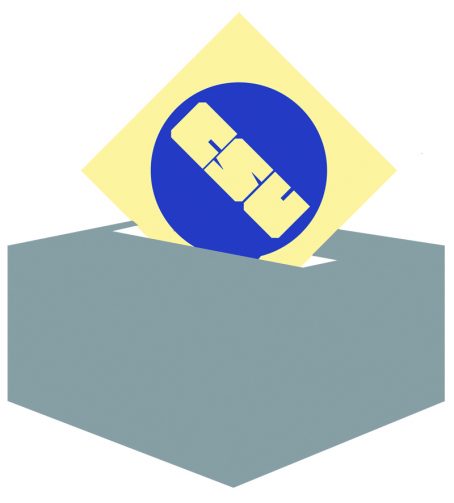Fee-levy groups may lose significant funds after the upcoming referendum. “That would mean [serving fewer] people. People that sometimes really need it,” said Ian Herrera, member of the board of directors of People’s Potato.
Concordia students will go to the polls from Nov. 12 to 15 to vote on six referendum questions the Concordia Student Union (CSU) is putting to the ballot with online fee levy opt-outs, raising many concerns across the university.
Fee levy groups are student-run groups, semi-independent from the CSU and are elected through referendum. They include The Concordian, The Link, the Frigo Vert, Cinema Politica, and many more. They are not part of the union’s student clubs. Instead, they are funded directly by students who have voted in previous CSU referenda to fund them. They give access to multiple services on campus for all students, like food services, student media and environmental advocacy centres.
The motion was proposed by CSU President Chris Kalafatidis. However, he explained he is not binding the CSU to his decision since he proposed the question as a neutral student at large.
While students have always had the option to retract their shares from fee levy groups, Kalafatidis wants to facilitate the process.
“It’s always been a part of the deal that ‘we’re all going to pay for this collectively, but we do have the right to opt-out,’” Kalafatidis said. “All we’re doing is embracing technology to make the process easier for everyone.”
The controversial question faced a lot of opposition from CSU councillors and fee levy groups themselves. In fact, none of the 23 groups have expressed support, rather the opposite.
“The way the process works now in person is a positive thing where people can be informed face to face to understand what services we provide,” said Emily Carson-Apstein, a Concordia student employed at Sustainable Concordia. “From there, it’s their decision to opt-out and we’re not critical about that. Moving the system online makes it impartial. It makes people make hasty decisions that they don’t understand the consequences of and it shuts down the conversation before it even starts.”
McGill University switched to online opt-outs in 2007. Students’ Society of McGill University’s President, Bryan Buraga, said that this caused many fee levy groups to struggle with financing.
“This led to a decrease in the quality of services provided by these groups until the opt-out rate stabilized, after several years, to approximately 10 per cent rate of what it is today,” Buraga wrote in an email to The Concordian.
Full-time Concordia students with a four-class course load pay $58.44 per semester for fee levy groups at the moment.
Carson-Apstein explained that students can easily see a return on these fees by occasionally attending offered services, like movie or documentary screenings and eating at the People’s Potato – even just once every two weeks.
The People’s Potato serves free vegan food for students. On average, it serves around 400 to 500 people a day.
“[Online opt-out] would drastically reduce the income that we get and by consequence the number of people that we serve every day,” said Ian Herrera, member of the board of directors of the People’s Potato. “We would have to reduce the serving time. That would mean [serving fewer] people. People that sometimes really need it.”
But Kalafatidis said that if the question were to pass, the CSU would still have to sit down with all the fee levy groups to discuss the new opt-out process. Kalafatidis has yet to consult any of them. An option, Kalafatidis proposed, would be a checkbox system. Students will be required to read a description of the group prior to checking the opt-out option.
The question on fee levy opt-outs was brought up last year by the CSU slate Cut the Crap, which Kalafatidis was part of. On top of opt-outs, the slate also proposed election reform and cleaner bathrooms.
“[Fee levies] are the backbone of Concordia’s culture,” Herrera said. “Concordia’s culture isn’t dirty toilets, it’s this.”
The CSU will also be asking if students:
- agree with the Concordia Student Union endorsing a Fall Reading Week proposal and pursuing its implementation at Concordia University;
- agree with the Concordia Student Union endorsing a university-wide food waste reduction proposal and pursuing its implementation at Concordia University;
- support giving all faculties equal representation on the Council of Representatives by changing the structure to three Arts seats, three Science seats, three Gina Cody seats, three JMSB seats, three Fine Arts seats and one Independent Student seat. At the moment, 14 seats are allocated to arts and science, six to Gina Cody, four to JMSB and three to fine arts;
- agree to a non-opt-out fee increase of $2.08 that would result in a 50 per cent reduction of le Gym and PERFORM centre fees and free Stingers game;
- approve the Sports Shooting Club to be officially recognized as a CSU club.
Graphic by Alexa Hawksworth
